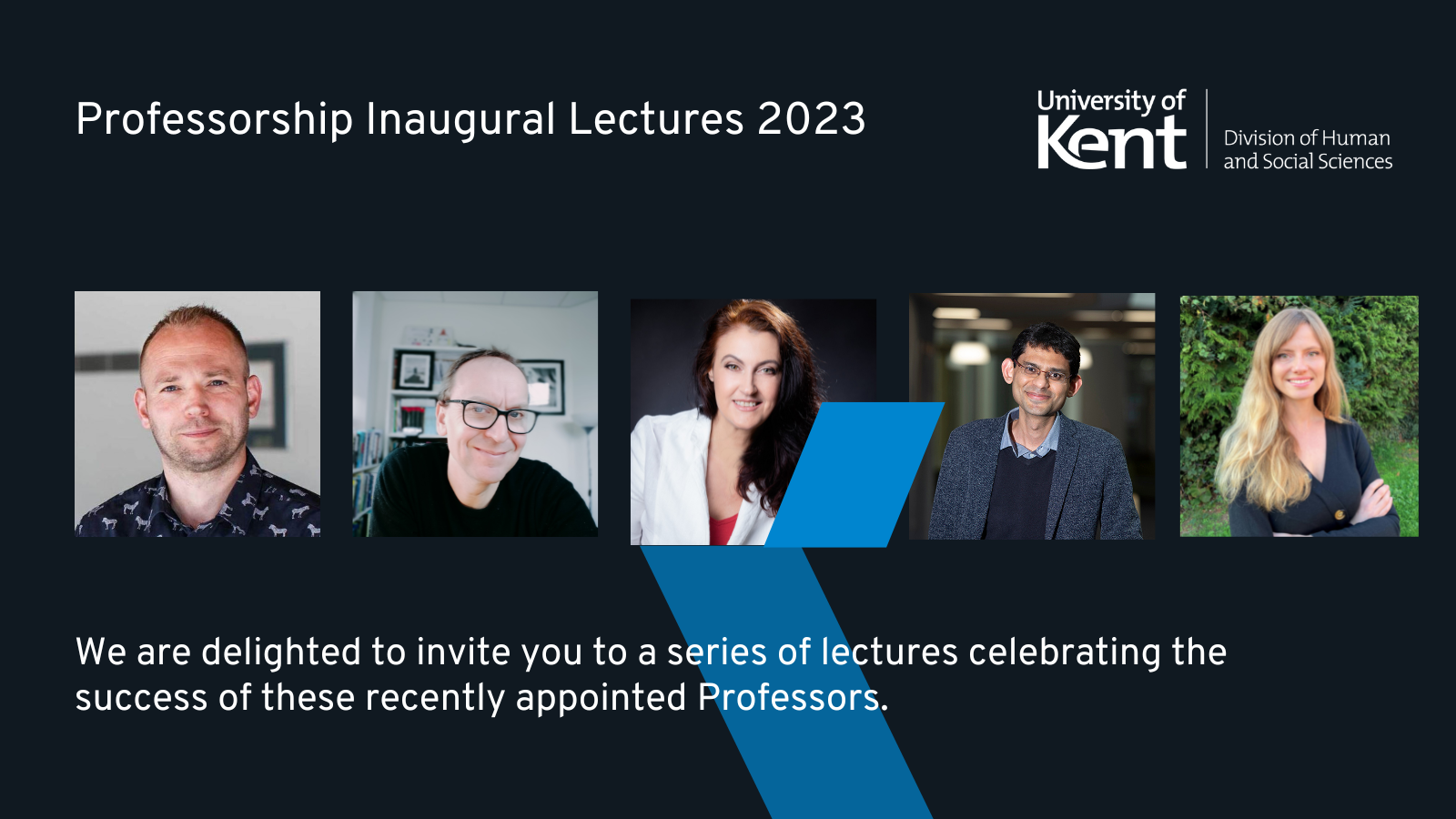
We are delighted to announce our first Divisional inaugural lecture series.
These lectures are a fantastic opportunity to celebrate the success of our recent professors, thank them for their contributions to the University and academia as a whole, and share some of the important and world leading research they have been responsible for over the last few years. Please come along to help them celebrate and to find out more about the fantastic research taking place across our Division.
Professor Aleksandra Cichocka, School of Psychology – Friday 10 Feb 2023, 5pm
Title: Making the Personal Political
‘In order to make informed political decisions, it is important to understand the psychological factors that influence political convictions and behaviours. This talk will examine how political attitudes are linked to various forms of self-evaluation and the ways people feel about the social groups to which they belong. It will cover survey, experimental and computational research, exploring especially the role of individual and collective narcissism in politics.’
Grimond Lecture Theatre 2, followed by a reception in Grimond Foyer.
Professor Zaki Wahhaj, School of Economics –Friday 10 March 2023, 3pm
Title: On the Economics of Marriage Decisions in Low-Income Countries
‘In many parts of the world, economic agency is intimately tied with marriage decisions: whether, when and who one marries. They affect a range of socio-economic outcomes including education, fertility, migration, and employment. Yet marriage decisions are often dictated by social expectations and norms, to the extent that policies that do not take them into account can have unintended consequences. The lecture will highlight how incorporating understanding of marriage-related norms from related disciplines can enrich economic models and yield new insights about the potential impacts of a range of policies.’
Grimond Lecture Theatre 2 followed by a reception in Drinks in Grimond Foyer.
Professor Albena Azmanova, School of Politics and International Relations- Wed 5 Apr, 6pm (CET)
Title: Regaining Our Futures: How can political theory help us break free of the tyranny of the present.
In the early 21st century, Western societies are at the height of their affluence, scientific brilliance, and institutional sophistication. Yet, they have lost the capacity to cope with the present and navigate the future. Long-term and global policy commitments are often neglected in favour of short-term and local concerns. We are trapped in the tyranny of a present scarred by rising inequality, precarity, discrimination and autocratic rule. Can political theory help us break free?
In this presentation, Professor Azmanova will draw on some of the conceptual innovations she has developed throughout her life’s work as a political theorist, starting with her critical engagement in the 1989 revolution in her native Bulgaria, to suggest ways of expanding our intellectual and political ambitions.
Boulevard Louis Schmidt 2a, 1040 Brussels, Belgium or join us online.
Professor Markus Bindemann, School of Psychology –Thursday 27 April 2023, 5.30 pm
Title: Identifying people we don’t know
‘The human face provides the primary visual means by which people can be identified, and for distinguishing one person from another. Yet, we are surprisingly poor identifying people whom we have never met before, despite the fact that important tasks depend on this. I have dedicated the past 15 years to studying the problem of unfamiliar face identification. In this talk, I will reflect on some of these findings and share some of the insights gained.’
Professor Rob Fish, School of Anthropology and Conservation –Thursday 11 May 2023.
Title: Environmental Values in a Contested World
‘In the world of modern environmental decision-making, the idea of protecting nature for nature’s sake sounds rather quaint. Nowadays, it is more typical of scientists and policy makers to view nature as an ‘asset’ from which a range of life-giving, life-saving and life-affirming ‘services’ are conferred upon people. In this lecture, I reflect on the institutionalisation of this world view, and the part I have played in it, drawing on research conducted in a range of land-use contexts. In doing so, I offer some thoughts on the challenge of ‘valuing nature’, and how decision making might be better calibrated to public values for nature as we labour at the dawn of a new environmental epoch.’
Visit this blog site for more details and look out for emails or Outlook/Teams invites to register for each lecture.